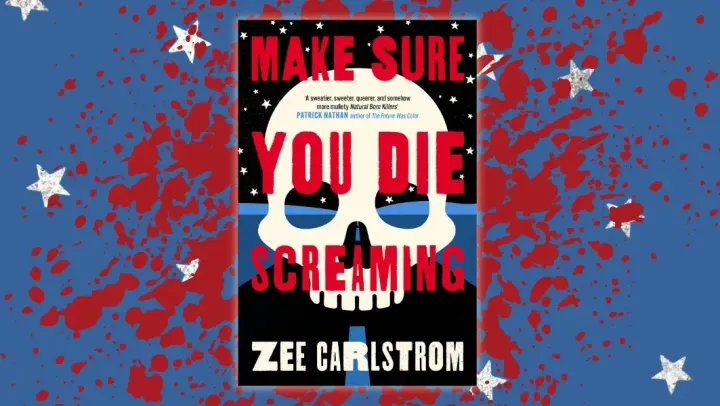Polari Prize faces backlash for including "TERF" author John Boyne on 2025 longlist

The Polari Prize, the UK’s literary award celebrating LGBTQ+ writing, has come under fire following the release of its 2025 longlist, with critics accusing the organisers of platforming a writer labelled by some as a “TERF”.
The controversy centres around the inclusion of John Boyne, author of Earth, on the main Polari Book Prize longlist. Boyne has previously faced criticism for his portrayal of trans characters, particularly in his 2019 novel My Brother’s Name is Jessica.
The novel, which follows a cisgender boy struggling to accept his sibling’s transition, was widely condemned by trans activists and readers. Critics argued that the story centres cis discomfort rather than trans experience, perpetuating harmful tropes. The title itself was seen as misgendering the protagonist, with one activist stating, “He misgendered the trans person in the title… that reflects a lot on what’s going to be in the book.”
Trans and nonbinary readers are not going to be safe if you continue to platform TERF authors.
Social media erupted shortly after the longlist was announced on 6 August, with one user saying: "Trans and nonbinary readers are not going to be safe if you continue to platform TERF authors. That’s it. That’s the bottom line." Another posted: "To platform the work of an open and unapologetic terf in the longlist of an LGBTQ+ prize is staggering, and to suggest in your statement that bigotry is simply holding "radically different positions" and engaging in "open dialogue" is incredibly revealing regarding the organisation as a whole."
In a statement published on social media, Polari Prize wrote: "The Polari Prize was founded on the core principles of diversity and inclusion. We are committed to supporting trans rights and amplifying trans voices, as demonstrated both in the history of the prize and the Polari salon, where trans and non-binary writers and performers have featured regularly as valued members of the LGBTQ+ writing community.
"The role of the prize is to discover the best LGBTQ+ books written in the UK and Ireland each year. The books are read and deliberated over by the jury, and progress through the competition stages on the merits of craft and content. The Polari Prize is awarded to books in a spirit of celebration of the work and the stories they tell.
Books are one of our best means to explore the most difficult and divisive issues, and we encourage an open dialogue across our community.
"We have always cherished freedom of expression in our determination to find our voice both as writers and readers. It is inevitable given the challenges we face and the diversity of the lived experience we now represent under the LGBTQ+ Polari umbrella, that even within our community, we can at times hold radically different positions on substantive issues. This is one of those times.
"John Boyne’s novel Earth was included on The Polari Prize longlist on merit as judged by our jury, following the process and principles stated above. While we do not eliminate books based on the wider views of a writer, we regret the upset and hurt this has caused. Polari is committed to inclusion, not exclusion. The resignation of our valued judge and former First Book Prize-winner Nicola Dinan causes us great sadness. Nonetheless we completely understand and respect her decision.
"Books are one of our best means to explore the most difficult and divisive issues, and we encourage an open dialogue across our community. It remains deeply important to us that trans and non-binary readers and writers feel welcome, safe and supported by the Polari Prize and the Polari Salon and continue to participate in our movement as readers, writers and performers."
The Polari Prize longlist also features acclaimed trans authors such as Avi Ben Zeev (Calling My Deadname Home) and Dean Atta (Person Unlimited), whose works have been praised for their authenticity and nuance.
Shortlists are expected in September, with winners announced at the British Library on 27 November.
Support independent LGBTQ+ journalism
Scene was founded in Brighton in 1993, at a time when news stories about Pride protests were considered radical. Since then, Scene has remained proudly independent, building a platform for queer voices. Every subscription helps us to report on the stories that matter to LGBTQ+ people across the UK and beyond.
Your support funds our journalists and contributes to Pride Community Foundation’s grant-making and policy work.
Subscribe today




Comments ()